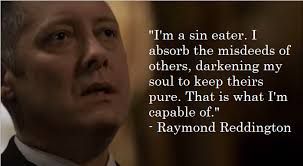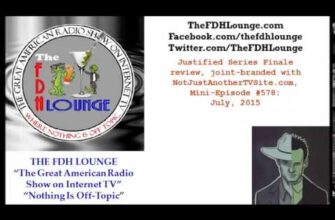Warning: Spoiler Alert
As was detailed in the spoiler-free analysis of House of Cards Season 3, this run of episodes – 27 through 39 in the series – represented the sharpest break yet for viewers. While Francis Urquhart served as Prime Minister for two-thirds of the BBC original, Frank Underwood (inhabited by the excellent Kevin Spacey) took until the end of the second season to become president – and had never been without his most trusted aide and henchman, Doug Stamper, until that point. The journey from the start of Season One – with Frank, seething at having been passed over for Secretary of State by new President Walker, deciding to use his post as House Minority Whip to secretly take his revenge – through to Season Two’s adventures as Vice President and up to the actual seizure of the Oval Office at the end of it all – seemed to indicate that there was nothing that Frank and his equally cunning wife Claire (portrayed in fascinating fashion by Robin Wright) could not do. As such, the presidency itself should be a breeze, right?
Oh, dead wrong.
Why was Frank’s journey in Season 3 so fitful? It would be cynical to spend too much time analyzing the meta angle about Beau Willimon’s crew needing to maintain the intrigue by making Frank suddenly seem fallible. After all, there should have been plenty of warning signs about the actualization of the goal being more perilous than the amazing journey to attain it … and some of these elements may actually have been conceptualized by the writing staff!
1 The difference between Urquhart’s and Underwood’s difficulties at the top can be explained by the difference between the UK and American electorates. The real president compared most often to Underwood is, of course, Richard Nixon – who, in typical awkward fashion, was known to remark that, unlike other politicians, he was not a “personality kid.” Well, neither is Underwood, although he’s better at faking it enough to get by than Tricky Dick, who was undone not only by scandal but by a complete lack of a safety net in the form of public affection. Meanwhile, in the UK, Gordon Brown lasted three years as prime minister despite possessing the magnetism of a fat-free, unsalted potato chip. Francis Urquhart ruling Britain with an iron fist despite an unlovable persona made sense: over there, if the public perceives you as delivering for them, you don’t have to be a baby-kisser. Did showrunner Beau Willimon take this difference into account when fashioning Season 3? Candidly, it doesn’t seem likely, but it was brilliant if he did.
2 An egotistical man on his best days – witness his smug asides to the camera – Frank’s cockiness was bound to grow out of control and undermine him when he achieved his ultimate prize. Realistically, attaining the Oval Office itself was Frank’s only goal once he put his revenge plans into motion at the start of the series. American society views the office with Godlike awe, reflective of the reality that less than 50 men in the 239-year history of the country have ever held the office. When you become the president, there are few if any opposing voices in your inner circle grounding you as there might have been previously. So with all of this taken into account and with Frank’s journey to the top of government probably more difficult and unlikely than any in actual US history, how was Frank possibly going to keep his ego in check and prepare for the very real daggers being sent his way? He couldn’t possibly muster the necessary humility to make those adjustments.
3 As noted at the end of the season, there’s only one chair behind the desk in the Oval Office and at some point after achieving the goal, Frank and Claire were going to have to come to grips with all of the glory being his. Again, for Frank and Claire, the journey to the White House was all-consuming. They both knew that they were consumed with the prize, but when it arrived, Frank’s “equal partner” wanted more than he could deliver – and when the grievances hit the light of day, Frank alienated her just as he had Jackie (played by Molly Parker) and Remy (played by Mahershala Ali) earlier.
4 Frank’s skill set seems suited to working in the shadows, rather than the broad daylight of the presidency. Like the British “FU,” Frank’s talents for backstabbing, leaking, undermining and outright murder were unmatched. However, none of those abilities are nearly as useful in the 24-7 bright spotlight of the presidency. It was surprising how often his adversaries – such as Vladimir Putin knockoff Viktor Petrov (played by Lars Mikkelsen), Supreme Court Justice Jacobs (played by Jonathan Hogan) and Solicitor General-turned-rival candidate Heather Dunbar (played by Elizabeth Marvel) – saw right through manipulations that would have easily succeeded in the first two seasons. When you don’t get to use your core skills at all times, they can get rusty. Frank Underwood: Peter Principle prototype?
5 Even Frank didn’t realize just how indispensable that Doug was to his successful schemes over the years. Clearly, Frank knew that Doug the henchman accomplished a great deal for him over the years, and as such, he should have been alarmed at the prospect of serving in the presidency without him. But he wasn’t and it took Doug’s stunt late in the season, offering to sell Claire’s most sensitive secrets to Heather, for Frank to realize just how vital Doug was to his success. Seth Grayson (played by Derrick Cecil) is no Doug Stamper.
Having proven that he was, by a large amount, the most duplicitous and untouchable predator in D.C. on his way up the ladder, Frank’s lack of footing in the Oval Office proved confusing and even greatly disappointing to many critics and fans. And an even more controversial angle involved Frank’s earnest pursuit of actual public policy initiatives: the America Works program at home that would aim to ensure full employment and the plan for international peacekeepers in the Jordan Valley to (somehow???) bring about peace in the Middle East. Some commentators have been so cynical (in true Frank Underwood fashion, fittingly!) as to refer to Prez FU as a cut-rate Jed Bartlet, the liberal idealist chief executive from the West Wing.
The latter criticism is patently unfair. Sure, it’s jarring to see the human embodiment of selfishness pushing a public policy agenda not aimed directly at personal enrichment or power – but there is in fact a bit of the pursuit of power in the plans. After all, Frank believes that these policies, if implemented, will be successful – and that could allow him, questionable public personality and all, to be re-elected as a man who “gets things done.” And Frank also alluded during the season to his legacy. Mere attainment of the presidency brings with it a form of immortality, but a successful, two-term presidency? That’s true immortality and what could be more important to a narcissist like Frank Underwood? Remember, in the aftermath of Bill Clinton’s impeachment, his aides used to joke about doing opposition research on his predecessors so that history might remember him more kindly relative to his peers. Having become president, Frank Underwood wants to be known for the rest of his life and well beyond that as one of the all-time greats. So watching him push his programs – no matter how ill-conceived they are in the real world – is entirely consistent with his persona. Those who don’t understand this point simply don’t understand his new role.
As noted above, Frank was forced to navigate the presidency without Stamper at his side until his stunt at the end of the season. Prior to that, extensive surgery and rehabilitation was necessary for Doug to regain his faculties. At the end of his training with his female therapist, a passionate encounter took place between the two, leaving red-blooded males everywhere to wonder why they don’t have more inclusive health insurance. Doug kept making efforts to get back into the inner circle, but Frank – not trusting his effectiveness because of the lack of decisiveness in dealing with loose end Rachel Posner (played by Rachel Brosnahan) – kept putting him off with the “sure, pal, once you’re 100%, we’ll talk” rap. Through it all, Doug struggled with backsliding into substance abuse before getting clean with the great help of his brother. In connecting for the first time with his brother’s family and appearing to understand that there is life outside the corridors of power, Doug appeared to become a fully redeemable human being. But then he spotted the opportunity to betray Heather, get appointed as Frank’s chief of staff – replacing Remy, who had replaced him – and the true relapse, to becoming a scumbag yet again, was underway. Having tracked down hacker Gavin Orsay (played by the always-awesome Jimmi Simpson) in South America, Doug used the information that he obtained there to track down Rachel yet again. It’s clear that she posed no threat whatsoever; she was a scared, helpless little puppy who wanted to live off the grid, away from the power circles she once inhabited as a call girl. And when he caught up with her, Doug appeared to accept this – until he changed his mind, murdering her in cold blood after he initially set her free. Doug, you’re going to Hell, dude.
And while four of the five reasons identified above for Frank’s struggles in the presidency didn’t involve Doug, one wonders how he might have made a difference for the chief executive had he had the opportunity – and how he might be able to weave his magic in Season 4. In his absence, Frank’s America Works program perished nastily in Congress, leaving Frank’s former colleagues in the party leadership from those chambers to withdraw their support for his re-election. Borrowing a page from LBJ, Frank gave a nationally-televised address to announce his withdrawal from the 2016 race so that he might devote all of his efforts to the passage of the program. But unlike LBJ, who stayed out of the 1968 race despite rumors that he might reenter at some point, Frank’s statement was a ruse that he always intended to abandon later. With his efforts still flailing, he relied on a highly dubious interpretation of the Stafford Act to provide the legal authority for him to raid FEMA funds. When the mayor of Washington, D.C., at his instigation, requested federal emergency relief for rampant unemployment, Frank put $1 billion worth of FEMA’s dwindling cash reserves at his disposal in the pursuit of full employment in the capital. The leadership of both parties screamed and howled, but they were powerless – until, inevitably, a Sandy-like superstorm headed straight for the East Coast. The authorization that was passed ahead of time included a poison pill for any future FEMA participation in America Works. Frank’s feverish study of weather patterns did not give him confidence that the storm would veer away, so he capitulated. But the storm did, in fact, hook back around to sea, leaving the predictions of catastrophe unfulfilled and depositing Frank’s hopes and dreams for first-term America Works success somewhere out in the Atlantic as well. But the forced abandonment of the program, just when joblessness in D.C. was plummeting – providing even old rib-cooker Freddy Armstrong (played by Reg E. Cathey) a job, although House of Cards of course doesn’t reveal the cost-benefit analysis behind the public sector’s massive investment – provided him the excuse he needed to “get back into the race” so that he might obtain a public mandate for a second-term America Works push.
But he was still trailing Heather in the polls (perhaps voters intuited that he was the kind of man to urinate on his father’s grave and spit on a hanging crucifix, both of which he did this season – in cowardly secret fashion, of course). She had resigned as his solicitor general to take him on, enraged that he acted on rumors that she was interested in the race by “subtly” threatening Jacobs with the public revelation of his dementia, so that he might clear his seat for her. Frank’s divide-and-conquer tactic, pushing Jackie into the race with the plan of putting her on the ticket when she dropped out, backfired when he greeted her dissatisfaction with the implementation of the plan with arrogant attempts at intimidation. Notwithstanding the fact that Heather wouldn’t promise her anything for her support, Jackie quit the race and endorsed Heather completely out of spite. This debacle caused Remy, who remained closer than he should be to the now-married Jackie, to resign his post.
Frank, however, gained ground in Iowa thanks to his star surrogate, Claire. The story of how she ended up there, however, was another major plot point for the season, covering her ill-fated stint as UN Ambassador. The nomination process was, of course, fraught with accusations of nepotism, but Claire appeared to have neutralized perhaps her most powerful potential opponent, Republican Senate Majority Leader Hector Mendoza (played by Benito Martinez). However, his promise of not actively opposing her nomination was merely a ploy to lull her to sleep so that he might ambush her in the hearings. Her clumsy response doomed the vote, but she badgered Frank successfully for a recess appointment. While she was demagogued in fairly stupid fashion, the “No” votes turned out to be correct about her aptitude for the position. Understandably, Secretary of State Catherine Durant (played by Jayne Atkinson) was uneasy about having an ostensible subordinate who was sleeping with the president. Well, Frank and Claire don’t do much of that – with the exception of one notable scene this season – but that’s the assumption about them, anyway. Claire’s sole triumph in the position consisted of winning over Catherine after a state dinner with the Russian president by – believe it or not – tanking a game of beer pong with her. Statecraft in 2015, ladies and gentlemen!
But Claire’s relations with the rest of the world were far more challenging. She struggled to whip the Israelis and Palestinians in line with Frank’s Jordan Valley peacekeeping initiative, but really had her hands full with Petrov. Having started on a bad note with the Russian strongman at the aforementioned banquet – it didn’t help matters when Petrov spoke to Frank of killing a man with his bare hands and the president stayed silent, aware that he was a coward in terms of how he executed his two murders – she and Frank became sidetracked in their pursuit of his support for the Middle East plan by Heather’s traction in the polls on the issue of Russia’s jailing of American gay activist Michael Corrigan (played by Christian Camargo). She and Frank flew to Moscow to obtain his release, only to learn that he wouldn’t sign a statement that basically renounced all of his beliefs. Arguing with him in his prison cell while Frank sat through an uncomfortable meeting with Petrov – so much for the supposition that an American president “more like theirs” would be more successful in dealing with them – she succumbed to sleep only to awaken to the discovery that he had hung himself. Having a rare attack of conscience, she made an impromptu decision at the joint press conference to attack Petrov for his cynical scapegoating of minorities. Of course, this caused a complete breakdown in US-Russian relations and she and Frank had a vicious fight on Air Force One as they returned home.
This rupture coincided with the window that she and Frank had established every seven years when they always renewed their wedding vows – with the understanding that either party could end the marriage at that time. Working their way through the rubble once Russia (apparently) reconsidered and sent troops for the peacekeeping force to the Jordan Valley, Frank and Claire followed through with the vows, only to confront more problems in the form of her worst failure yet. Gaslighted by Petrov’s operatives, she became convinced that an attack on Russian forces in the region was a false flag instigated by their own government. When Frank sent in special forces to penetrate the area ruled off-limits by the Russians for an investigation, a firefight ensued and an American casualty resulted. Flying to the Jordan Valley for an emergency summit with Petrov, Frank was devastated to learn that his wife had been set up and he had compromised himself by being persuaded by her. Petrov was willing to make nice, but the price for his support on any geopolitical issues would involve Claire’s head on a stick. Pointing out that she was needed in Iowa anyway, Frank told her to announce her resignation with that face-saving excuse handy. During her door-to-door campaigning, she encountered an Iowa housewife dealing with the same kind of double standards that she increasingly saw Frank as imposing upon her. She imposed a “sit-down strike” of sorts, claiming ill health as an excuse to stay in the White House over the last few days of the campaign while Frank barnstormed the state. In the end, his victory was narrow, but it was all he needed to survive to New Hampshire. With his ego fueled by what resembled a “Truman-in-‘48” comeback and his anger at Claire’s sudden resistance to going along with the program, the two had another vicious fight that resulted in her delivering the season-ending cliffhanger: she was leaving him.
Other loose ends involved Gavin on the loose in Venezuela with the capacity to become a Snowden-like thorn in the administration’s side (or possibly much worse, considering that Snowden apparently does not possess any dirt on President Obama or his inner circle personally) and star novelist Thomas Yates (played by Paul Sparks), who was enlisted by Frank to write a hagiographic book about Frank/America Works to aid in the 2016 election, only to have a falling-out after Frank and Claire confided many sensitive details about themselves.
Other returning characters for the season included Vice-President (!) Donald Blythe (played by Reed Birney), Edward Meechum (played by Nathan Darrow), Lisa Williams (played by Kate Lyn Sheil), Ayla Sayyad (played by Mozhan Marno), and the wonderfully greasy Bob Birch (played by Larry Pine). Another cast addition was decorated aggressive journalist Kate Baldwin (played by Kim Dickens).
The season was very compelling and entertaining on the whole. In terms of the execution of public policy and geopolitics, House of Cards is easily picked apart by political junkies, but the target audience is far wider than that – and this season’s plotlines were no more unrealistic than those of the first two. It’s a program that’s always going to wallow in some soapiness, like Magic City, but not as often as some critics allege. While Frank’s various missteps throughout the season are jarring given what was shown of him in the first two seasons – and do not really ring true in terms of him ultimately avoiding all consequences in Iowa, a turnaround that is never explained – the widely-circulated conventional wisdom that this season represents a dramatic departure is extremely overwrought. President Frank Underwood, especially shorn of his essential right-hand man, Doug Stamper, was always going to be traveling a tougher road than Future President Underwood. Remember that old saying about airplanes, that passengers in first class hit the mountain first when there’s a crash? Well, when you’re riding Air Force One, the entire plane is first class.








